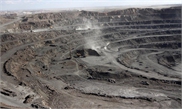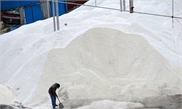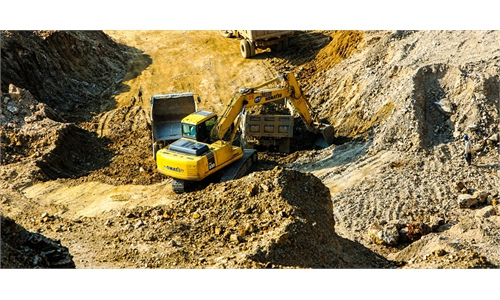
Illustration: Chen Xia/Global Times
The 2022-2023 fiscal year seems to be a year of challenges and difficulties for Australia's Lynas Rare Earths, the biggest producer of rare earths outside of China. Worryingly, things may get even worse, as the US is keen on forming small circles, setting up a critical mineral alliance that will further disrupt the global supply chain.Lynas hiked construction cost estimates for its rare-earth facility at Kalgoorlie in Western Australia by more than one-quarter, at a time when Australian miners in general have been incurring significant cost increases due to a jump in labor and construction material expenses and general inflation, Reuters reported on Tuesday.
Higher supply from China and softer demand in key markets led to weaker pricing for Lynas' products, so annual profit slumped 43 percent to A$310.7 million ($200 million), the report added.
US President Joe Biden in 2021 directed his administration to conduct a review of key US supply chains, including those for rare earths. In recent years, the US has intensified efforts to build critical minerals and rare-earth alliances under the pretext of so-called supply chain security, but its real intention is to "decouple" from China and build US-centric critical mineral supply chains to strengthen US control over critical resources.
Australia is famous for its rich resources. The country is one of the world's leading producers of aluminum ore, iron ore, lithium, gold, diamonds, rare-earth elements, uranium and zinc. As a result, the US regards Australia as an important ally for critical mineral-related issues, but Washington's geopolitical game harms Australian companies' commercial interests, making them big victims.
The West's push to develop independent supplies of critical minerals and rare earths accelerated after so-called supply chain risks were hyped by politicians in Washington. However, medium- and long-term development plans for the rare-earth industry in the West are driven by geopolitical factors, not economics. So it's not surprising when Lynas sees a profit slump.
As reported by Reuters, Lynas lifted its production capacity forecast for the Kalgoorlie plant to 9,000 metric tons per annum (mtpa) from 7,000 mtpa, although there is softer demand in key markets amid global economic uncertainty.
The West lags China on both the supply and processing of some materials key to electronic products. It is the result of multiple factors, and one thing is clear: this is a market choice. If the US cannot help itself and its allies build up the competitiveness of its mining and refining industries by improving technology and reducing business costs, then the US will find it impossible to revive related industries.
Increasingly, national security concerns are interwoven with economics in terms of processing capacity, but creating fear and panic over national security will only make things worse, instead of supporting the development of the industries.
China is well known for its advantages in the global rare-earth industrial chain, which is based on years of efforts. Politico reported in 2022 that China accounts for 63 percent of the world's rare-earth mining, 85 percent of rare-earth processing, and 92 percent of rare-earth magnet production.
The reason why China has an advantage in the rare-earth sectors is because China has formed a complete industrial chain and has low-cost and low-pollution processing capacity. Given these factors, the development of China's rare-earth sector will not be impacted by the West's geopolitical scheme.
While Western countries focus on hyping so-called national security concerns, what China should do is to strengthen its industrial advantages, upgrade processing technologies, reduce production costs, and promote practical cooperation.
Washington may want to curb the development of China's rare-earth sector and decouple from China's supply chain, but if it continues to focus on geopolitics-oriented rare-earth development, its efforts will be largely in vain.
The author is a reporter with the Global Times. bizopinion@globaltimes.com.cn



